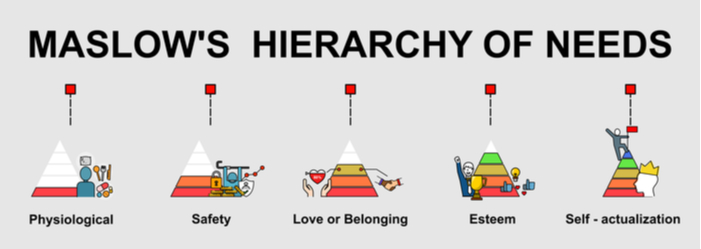Let’s discuss the intricacies of navigating consumer psychology. By attaining this type of in-depth knowledge about your audiences, your ability to build lasting relations can improve significantly. Along with this, however, come great ethical responsibilities. Read along as we unpack this in greater detail.
According to Britannica, consumer psychology is:
A branch of social psychology is concerned with the market behavior of consumers. Consumer psychologists examine the preferences, customs, and habits of various consumer groups; their research on consumer attitudes is often used to help design advertising campaigns and to formulate new products.
In other words, the inner workings of your audience affect your buyer personas and targeting campaigns. When you understand how someone thinks and feels, you’ll be able to go beyond the surface level of target market identifiers and be able to form better connections with them. With so many choices consumers face, being a brand that is favored is a massive feat. And the way to achieve this is to have an in-depth understanding of your customer base.
A Culture of Consumerism
In the creation of consumerist culture, we had the introduction of TV as the main form of media, which helped to centralize the pervading culture. There was also the creation of infinite goods which required the demand to match that. The idea that having things equated to satisfaction was then promoted. Possession was the route to the top of the societal hierarchy - hello, material girls, and the never-ending next best thing.
On the whole, consumer behavior has an influence on society and the way it functions. The way a group of people thinks will affect what they buy, what they care about, and so on. In today’s age, people have become critical of the culture of consumerism, and this has created a shift in consciousness. This is why branding is of the utmost importance for brands who would like to find acceptance and support from their target audiences.
Consumer psychology is also related to how and why people buy and use products and services. More and more, we’re seeing marketers look to these elements when researching their audiences. It should be noted, however, that there is a fine line involved, as using underhanded tactics forms the basis for manipulation, which is something your brand needs to stay away from doing. So, how can marketers use consumer psychology in an ethical manner?
For one, viewing your consumers at a personalized level with rich and complex lives is important. From a positive point of view, it should evoke empathy and help you better identify their specific needs which you can solve for. By understanding the holistic elements of your customers’ lives, you can see beyond the need to appeal to the desires of the moment and attempt to sell things and ideas that don’t really benefit them in the long term.
How to Approach Consumer Psychology
This crosses the line into negative territory when marketers use people's fears and habits against them, or try to close deals using psychological tricks that put the business’s needs before that of their customers. While these tactics can result in more sales, they often leave the consumer feeling despondent, tricked, and filled with buyer’s remorse which negatively impacts their perceptions of a brand and the potential for creating brand loyalty.
Conducting research into the psychological aspects of your audience requires you to look into the hard-hitting questions that are rooted not only in personality but also in terms of hard-wired human behavior. For example, you could produce the same advert for your audience, yet it could be interpreted and responded to in very different ways among the specific segments. Where people stand in society and how much they care about that also affects how people think, what they want, and how they’ll act.
While it's one thing to factor in personality types, this simply tells you what a person is like and how they respond to things. To really get a sense of someone's psychological makeup, you’ll need to look at what drives them at a core level, like Carl Yung’s studies on the ‘shadow self’ or the learned childhood messages that become engrained in our thought patterns. For this, have a look at the enneagram types, it is a fascinating examination of what drives people based on their core fear and desires.
The Role of Fear and Desire in Decision-Making
That is the crux of this article - how fear and desire affect psychology. It is known that fear and desire can actually look the same, albeit they are on opposite ends of the spectrum. In fact, we have seen this come to light as one of the main themes in the latest installment of The Matrix. Let me explain...
In Resurrections, the driving force of the matrix is fear and desire, in which we’re hopeful about a better future, and fearful of a dark past while being stuck in a continual loop of living life on autopilot. By continually yearning for things and fearing loss, you become an endless consumer. In another lesson we learn from the movie, we see that feelings are easier to control than facts and that buying into a reality is easier than disposing of dreams.
While Mallow's hierarchy of needs may be outdated and too general to apply to all of society today, it can help to illustrate the levels of needs humans have. While a portion of spending is done for survival, much of it extends beyond that. For example, you may need a car to get to work, but the market is filled with a variety of cars and what you choose to spend on it is influenced by more than just the need for transport. This can include the likes of showcasing your social status, or attempting to fulfill inner desires to feel something - it’s called retail therapy for a reason, and the hit of dopamine that comes from making a purchase can be addictive.

One of the ways marketers use fear is by utilizing supply and demand factors. When you only have a limited supply, you ensile a scarcity mindset, and demand increases based on the idea of exclusivity. Whether this marketing it true or not, it will have an influence on your consumers. The same goes for social influence, since people are hard-wired to want to belong, and so they’ll take steps that help them achieve that.
The Drive to Consume
At the end of the day, advertising is about showing people something with the goal of persuading them to take the desired action. Marketing is lined to conditioning, whereby audiences are taught to create associations with brands over time. It is important that your consumers are not coerced or exploited for capital gains. Businesses perform better in the long run by caring for their customers.
In one sense, attitudes and outlooks can certainly change, so marketers will want to keep their eye on these shifts. But at a deeper level, the factors that drive human behavior and psychology are hard-wired, so once your marketing team has these down, you’re set and use these findings to inform your marketing for years to come. It is also important to consider the differences between generations as this continues to shift.
There are many factors that will influence someone’s perception of a brand and its offering. For instance, the visuals and colors play a role (research color psychology for your next marketing campaign), as well as the key messaging, since words evoke different feelings and associations. Ensure that your other marketing research methods are sound too since changes to the way to collect and use consumer data are changing.
Everything matters and means something, so marketers need to be well aware of this. This will not only improve your own campaigns and increase trust, but it will also safeguard your brand from unintentionally causing offense.

In today’s times, we have seen an increasingly polarised world. There are many different viewpoints and limited understanding or connection between those with opposing views. This can be difficult for brands to appeal to and they will find that the age-old saying that you can’t please everyone still rings true. The policies and values of a business will no doubt affect customer perceptions, as informed by their own set of thoughts, beliefs, and opinions.
So, what are some of the ways marketers can learn about consumer psychology? Gaining knowledge about psychology is the first step as this will give you a theoretical basis to work with. When it comes to applying this information to your customer audience, there are various ways to learn about them, from social media listening to surveys and importantly, observations.
Now more than ever, consumers seek safety and reliability. By appealing to these desires in an authentic way, you’ll be on your way to bettering your brand’s perception. Consider what you’re appealing to, especially when consumers buy things for both obvious and hidden motives. On the one hand, there are rational and conscious needs, and on the other is subconscious feelings that are ruled by emotions and predispositions.
Speaking about brands, they too have personality types. This helps people to categorize and remember them and what they represent. For example, Lindt chocolate is a luxury item that is all about indulgence. Meanwhile, Jeep is all for the rugged track and adventure. In other words, when studying consumer psychology, be sure to take into account your branding as this affects how people view your brand.
The Key Takeaways on Understanding Consumer Psychology
There you have it - a look at consumer psychology as it applies to marketers. The main takeaways from this article are to understand your audience on a deeper level, avoid using tactics that play on the human condition unfairly, and see where your business fits in in an ethical manner.
For more on how to manage your brand, reach out to us at Nexa.
%20(1).png?width=2701&height=607&name=BRC_NEXA_LOGO_BLACK%20%26%20VIOLET%20(1)%20(1).png)
%20(1).png?width=2701&height=607&name=BRC_NEXA_LOGO_WHITE%20(2)%20(1).png)


![The Cost of Social Media Marketing in Dubai, Abu Dhabi and Doha [Updated 2023]](https://blog.digitalnexa.com/hs-fs/hubfs/Copy_of_11.16.2014.png?length=100&name=Copy_of_11.16.2014.png)









Comments